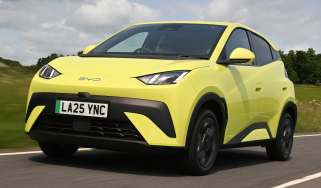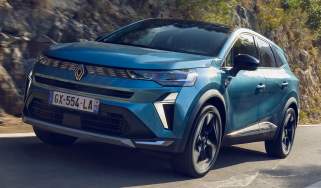Exclusive: Andy Palmer on the 2030 petrol and diesel ban
Former Aston Martin boss Andy Palmer explains why the ban on diesel and petrol cars by 2030 will have been met with both trepidation and optimism in the boardroom

The headline-grabber amongst a raft of ‘green’ initiatives announced by the UK Government was the plan to ban all diesel and petrol cars by 2030 (and hybrids of indeterminate pedigree by 2035).
On the face of it, this is a move that should be welcomed. It’s big, bold and ambitious. Yet, this announcement will no doubt have been greeted with a degree of trepidation in the boardrooms of British automakers. In a global market, the UK needs to see this kind of commitment replicated worldwide. If this is a unilateral act of the UK alone, the unintended consequences would be to hand a sizeable advantage to foreign manufacturers with less enthusiastic commitments to the green agenda. Thankfully, as hosts of the global Climate Change Conference (COP26) next year in Glasgow, the UK has a unique opportunity to demonstrate its leadership and challenge others to follow suit.
There’ll also be question marks over how British manufacturers are supported over this next decade of transition. The UK is a world leader in building off-road SUVs and luxury vehicles. Yet, these manufacturers are the ones who will need the most support to be ready for 2030. Expect the CEOs of these companies to be lobbying hard for government grants and support with the capital expenditure required to pivot operations accordingly.
Make no mistake, this announcement, with global buy-in, has the potential to be transformational for the automotive industry. The technology giants, namely Apple and Google, have been teetering on the edges of the industry for some years now. With their deep pockets and big ambitions, this initiative could provide them with the perfect platform to make a serious play in the market and it’ll leave the established names in the industry glancing over their shoulders.
Further down the supply chain, the UK needs to invest heavily in battery R&D. Not simply licensing technology from China and Korea but inventing and developing homegrown chemistries that could put the UK on the path to global leadership in this space. The UK is the country, after all, that invented the lithium-ion battery that has gotten us this far.
Ultimately, this announcement is positive news – but as always, the devil is in the detail. My colleagues in the industry will have a long list of questions for the Prime Minister on the back of this initiative and the government has fewer than 10 years to get everything in place to make it both a commercial and environmental success. Let’s hope they get it right.
Andy Palmer is currently Non-Executive Vice Chairman of InoBat Auto, a Slovak battery producer and Non-Executive Chairman of UK bus manufacturer Optare.
Switching to an electric car? These are the best electric cars on sale now...
Find a car with the experts



